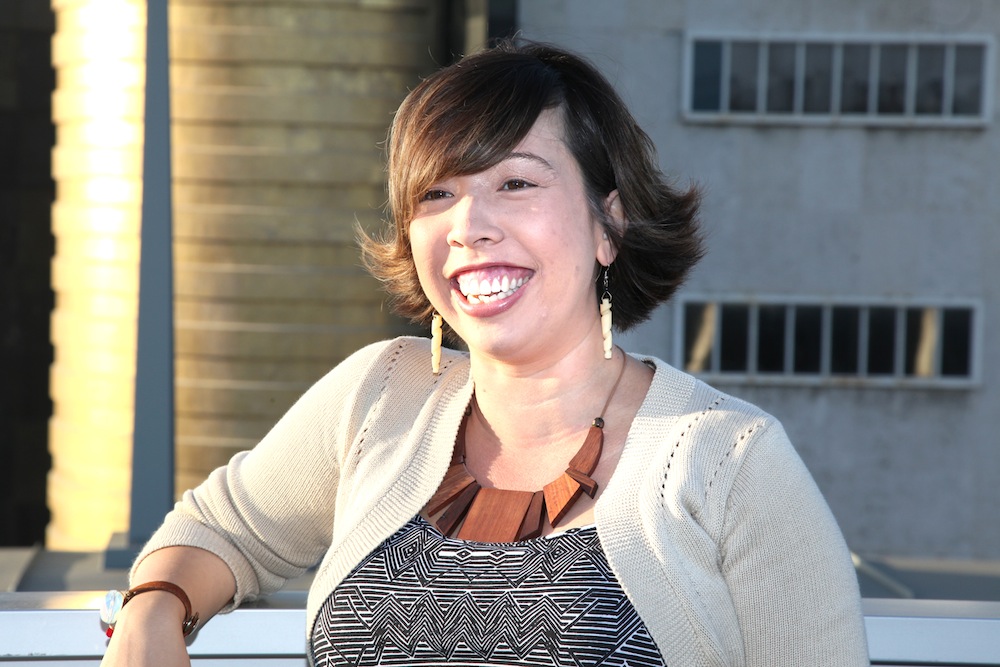
Writer Erika Hayasaki teaches literary journalism at UC Irvine and is the author of the forthcoming book The Death Class; previously, she worked as a Los Angeles Times reporter. Before talking with the choreographer Debbie Allen about the arts and her life and work, Hayasaki got the Zócalo green room treatment, fielding questions on everything from imagining her own obituary to the device she reads on.
What superpower would you most like to have?
The ability to transport myself places. That would be cool, because I hate airplanes.
What dessert do you find impossible to resist?
Red velvet cake.
What’s the first line of your obituary?
See I used to write obituaries, and it was a very standard formula: So-and-so died. Hopefully it will be “died in the comfort of friends and family.” Hopefully it’s not tragic. But if it is, it is.
Where and when did you learn how to swim?
I think I was around 5 or something. My dad probably taught me first, and then I took swim lessons. Although once my dad put me on the side of a pool and thought I could swim when I was very young, and I ended up falling in and nearly drowning, but I didn’t—so that’s a good thing.
What’s your biggest pet peeve?
People who lose their tempers over really small things like traffic or grocery store lines. Even though I understand that.
What teacher or professor changed your life, if any?
Rick Meyer—a Pulitzer-Prize-nominated-and-winning editor and writer at the L.A. Times. He teaches narrative journalism.
On what device do you do most of your reading, if any?
iPad.
Whose talent would you most like to have?
Maybe Debbie Allen’s dance skills. I loved dancing growing up, but I never had her abilities. But I did dance. I was on the dance team in high school and college.
What was the last thing that inspired you?
Just last week working with my students—on Thursday they were reading some of their rewritten edits of stories. To see them grow as writers before your eyes. I see that pretty much on a weekly basis, and I think that’s pretty inspiring.
What question do you get asked most often by the aspiring journalists you teach?
How to get a job. I don’t have the magic answer for that one. But I think that it’s changing today in the digital world, and there are lots more opportunities if you’re looking into digital journalism than when I started. So I actually think it’s more promising in ways than it was 15 years ago.



